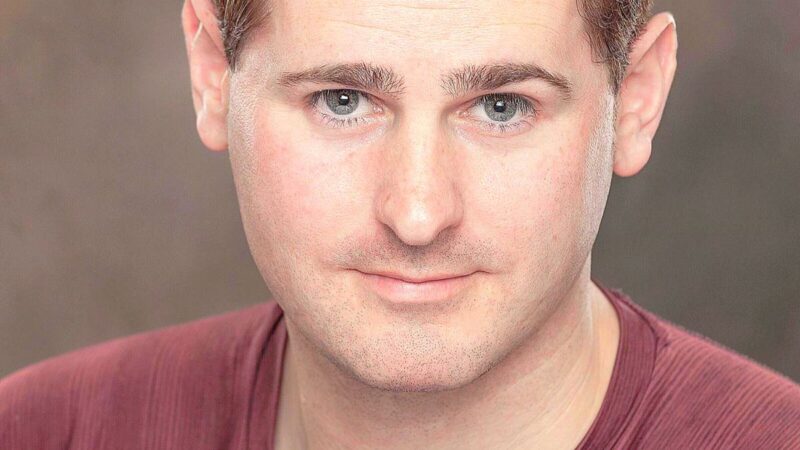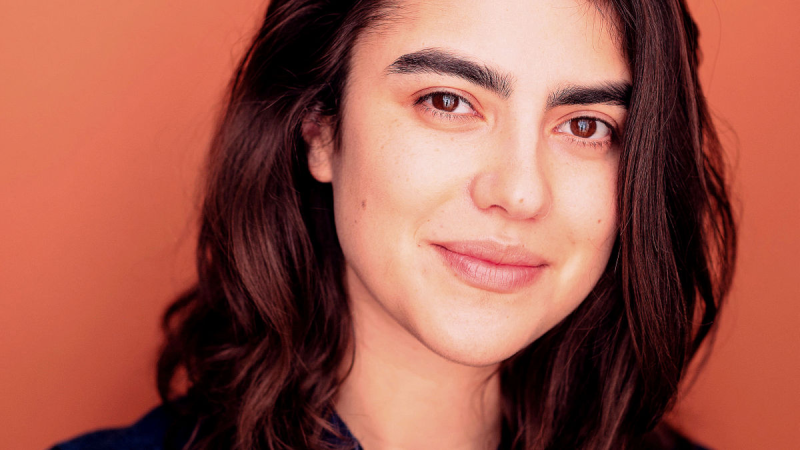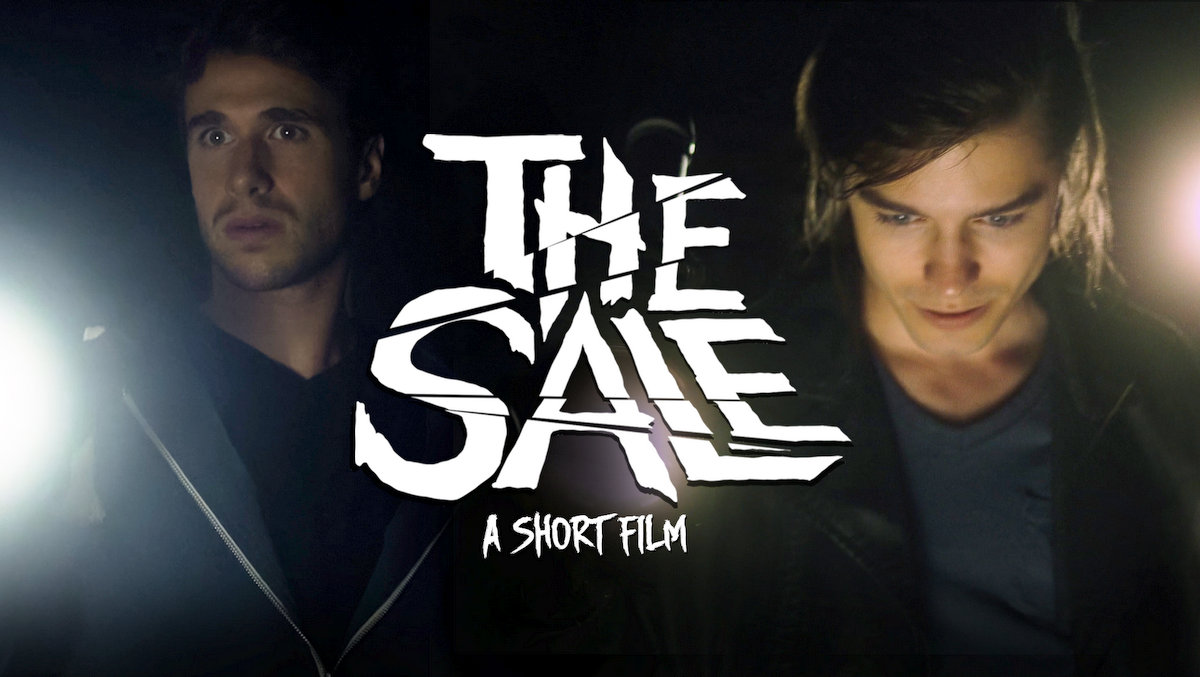
An Industry Case Study
Narrative | Dramatic Features
Film Name: The Sale (Short Film)
Genre: Horror/Thriller
Date: March 24th, 2021
Director: Max Cianci
Producer: Max Cianci
Writer: Max Cianci
Cinematographer: Raffaele DiLullo
Production Company: NA
Budget: About $1,200
Financing: Independent. Funded by the crew
Shooting Format: 2.39:1
Screening Format: Digital
World Premiere: NA
Awards: NA
Website: https://vimeo.com/528453584
Watch The Sale
Watch The Trailer for The Sale directed by Max Cianci
A Short Biography of Max Cianci
Max Cianci is a narrative film director based in Pittsburgh, Pennsylvania. Max graduated from Point Park University’s Conservatory of Performing Arts in 2018 with a Bachelors in Cinema Production and a concentration in film directing. While in school, Max travelled internationally studying film in France and New Zealand.
After graduation, Max traveled as a staff set production assistant on film and television throughout Louisiana and Pennsylvania. After two years in the film industry as a set PA, Max returned to Pittsburgh and began producing and directing his own narrative and commercial work. Max also works part time teaching film production at the Community College of Allegheny County in Pittsburgh. He looks to continue directing both narrative shorts and features in the future.
The Max Cianci Interview
indieactivity: Tell us about “who you are“?
Max Cianci (MC): My name is Max Cianci, I’m a film director based in Pittsburgh, PA. I write, produce, and direct narrative films and commercials. I love traveling, watching movies, making movies, and eating pasta.
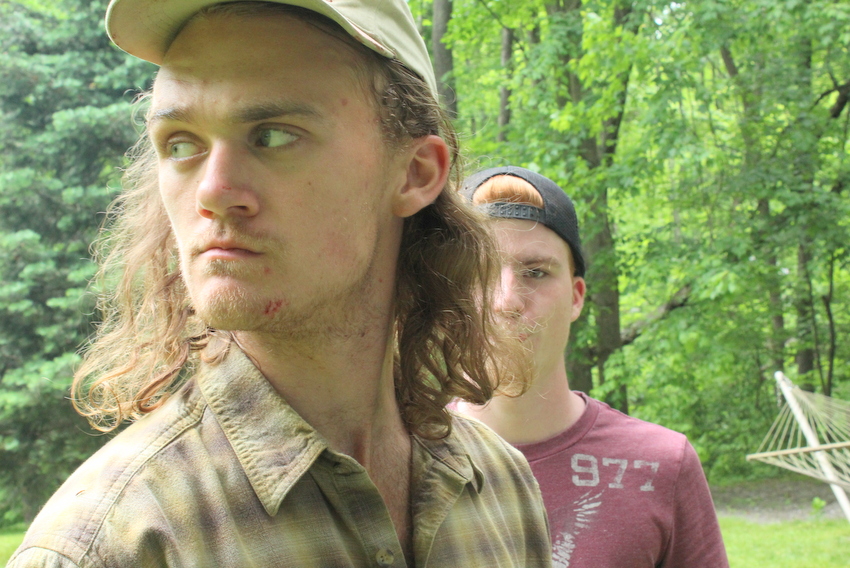
Introduce your film?
Max Cianci (MC): The film is titled The Sale. The story follows two thieves looting an “abandoned” backwoods auction house. As they go deeper into the old building, they realise the old business may have never shut down. This film has an overarching dark, ominous tone. Our goal was to keep things pretty obscure in regards to where things would end up for our characters. We designed the film to be misleading, fast-paced, and uncomfortable. Most of our creative decisions were rooted in those main points.
Tell us why you chose to write, produce, direct, shoot, cut/edit the movie? Was it financial, chance or no-budget reason?
Max Cianci (MC): I chose to write, produce, and direct the film because I wanted to. I want to be a film director. The reality of that is, someone isn’t going to just walk up and give me a directing gig. I need to build a base of work to show people that I can be trusted with a project. So, when I thought of the concept, I thought it would be a good way to helm the project and show that I can handle the responsibilities of a narrative piece. I also wanted to use it as a lesson in filmmaking. That way, when I move forward onto a larger project with a producer and screenwriter, I’ll have a better understanding and appreciation for their roles.
Introduce your crew?
Max Cianci (MC): The first crew member to come on board was the Director of Photography, Raffaele DiLullo. He and I are best friends and he’s one of my closest collaborators and confidants. My editor Kelsey Myers was brought on shortly afterward. She and I had worked on several projects together in the past, and she has a fantastic sense of rhythm and great intuition for post work.

My composer is Christopher Poetz. He brought an incredible amount of value and emotion to the music in the piece, and it really feels like half a film without the music he created for it. Andrew Yackel was our lead, and he was an absolute pleasure to work with and gave a gripping performance. Jimmy Brewer played Eric, and he also did a fantastic job and brought an incredible amount to his character. David Ogrodowski gave a really great performance for our character of The Boss, and it was really great to work with him.
What are your personal experiences putting on all these hats/responsibilities (simultaneously)? Tell us about story, writing, and production?
Max Cianci (MC): I think the main caveat with taking on several roles when you’re helming an indie thing is the reality that things are going to be forgotten and not paid attention to and that should be given more time. So much of indie directing is delegating, and you need to have the personnel that allows you to do your job right, which is making sure that the piece as a whole is heading in the right direction. Sometimes you get so caught up in the little things that it can be difficult to see the forest through the trees.
Luckily, this thing was small enough that we were able to keep the reins on it even when I was performing several tasks at once, I would suggest indie directors really spend time making sure they have enough crew members to properly delegate the tasks needed to make the film great. That is a really important lesson I learned on this film. If not, it doesn’t matter how hard you hustle, the film itself will suffer. You are there to service the story and entertain your audience. Leave your ego at the door, and be prepared to spread the responsibilities around so the thing can be made without you breaking your back.
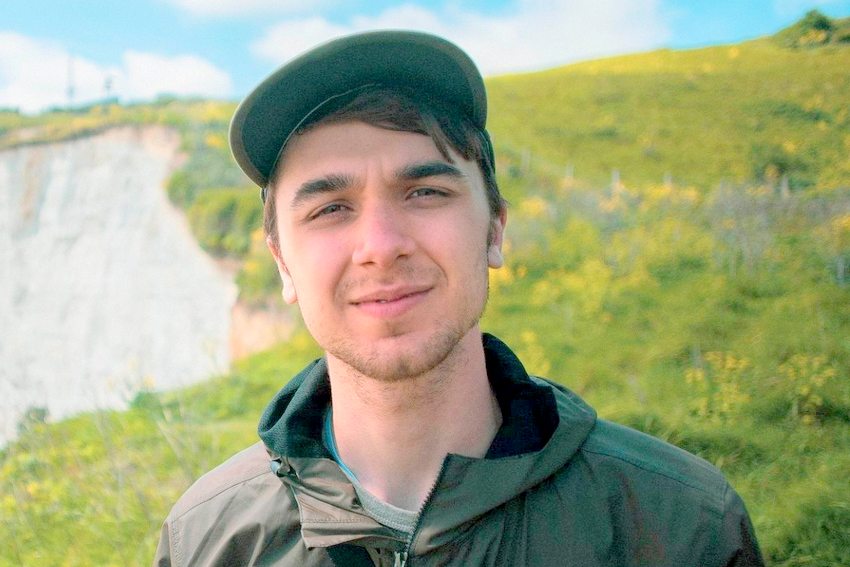
What is the source of the idea? How did the story develop from the idea? And how did the story evolve into a screenplay? Why do this story? Do you have a writing process?
MC: At the time, human trafficking was a prevelant issue in the news, which prompted me to do some research on how much an issue it was. The research was really horrifying, just in regards to how many victims are trafficked right here in our own state. It gave me this feeling of “Evil in our backyard.” I knew my family had access to an old auction building, and I knew there were several actors in Pittsburgh that I really wanted to work with.
The idea of The Sale was formed from all of that. I don’t really have much of a writing process. I thought of a concept, which Raffaele DiLullo definitely helped me become confident with and gave some excellent input, and then I just started writing drafts. After I got through a few, I sent them to some people to try to get feedback. Made some revisions. And then we shot the thing. And that was pretty much it.
Let’s talk pre-production: take us through a timeline of how you started and ended it?
MC: So the concept was created about four weeks before we ended up shooting the thing. During the writing process, I was getting the crew together. Once I had a working script, I sent it to our main cast to see if they wanted to get attached to the project. Once they were on board, I got their availability and scheduled the shooting weekends. From there, I got the crew locked in and found the equipment. I scouted the locations with some crew and came up with a shooting schedule. And then we made the drive to our shooting location and began production.

What was your rehearsal process and period?
MC: Because of how quick we put the project together, all of our rehearsals happened on the shooting day. Normally, I would much prefer to have a staggered sort of rehearsal process. I’d do a read through with the actors, get them together in a room to get some blocking ideas, get them in the space and block and rehearse, and then do a final rehearsal for the crew the day of. We couldn’t do that, so we just had to work out things on the day. Which was a challenge for both the actors and myself, but we made it work. I attribute that completely to the talent of the actors and their trust in the material.
You shot the film in 4 days. How long were your days?
MC: The days were about 12 hours each.
Did the tight shooting schedule make it harder or easier? How did it affect performances?
MC: Honestly, our schedule was pretty solid. We really didn’t have many big problems.
During the film production, what scene (that made the cut) was the hardest to shoot? And why?
MC: The auction was challenging to shoot. We had a lot of elements to cover, and being confident that it would work in the edit. But we planned things out ahead of time, and the editor was actually on set, so I was able to communicate with her as well during shooting. Eyeline and screen direction were really important as well.
What worked better in this latest production that mightn’t have worked so well in the last one you did?
MC: I don’t have an answer for this question.
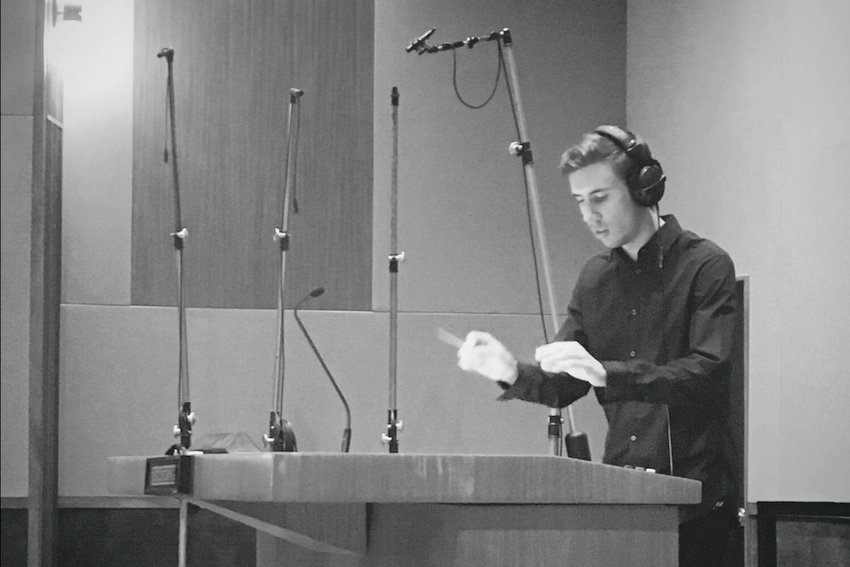
What were the advantages and disadvantages in the way you worked?
MC: The advantages of the way we worked was that it was fun and enjoyable and there was a lot of room for creativity. The disadvantages… I don’t know. It was an indie film and we were just figuring things out as we went. Not really sure of the blatant disadvantages. We didn’t have any money?
What was the experience like of working with a small shooting crew?
MC: It was great. They all cared about the project and gave their best every day. Everyone did multiple jobs, and helped out wherever they could. I had an incredible crew on this film.
The film looks stunning. How did you get such a good look when shooting so fast?
MC: Thank you. I attribute the look to my director of photography, Raffaele DiLullo. Raffaele has an incredible eye for film, and he and I worked closely in the storyboarding process, so he had an understanding of the composition and feel I was going for, and he knew how to execute it efficiently and creatively. Raffaele also has a great knack for G&E, so he knew how to make quick rigs and solve lighting issues quickly that looked and worked great.
When did you form your production company – and what was the original motivation for its formation?
MC: I don’t have a production company yet, but I’ll be forming one this year.
What about independent filmmaking and the business do you still struggle with?
MC: Independent filmmaking is fun and full of hopeful tenacious passion that’s infectious to be around. It always pushes me to keep creating and try to make good stuff. If anything, I just wish I had more money to be able to pay folks for their time.
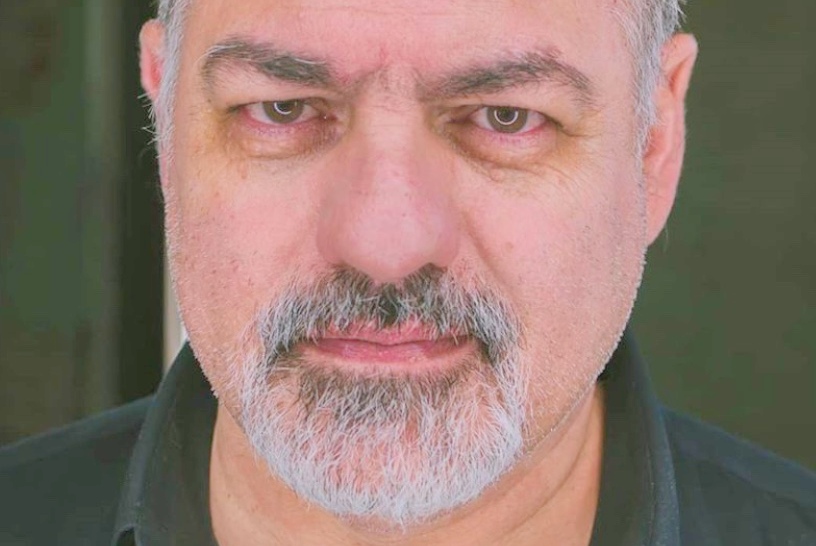
Where do you think your strengths lie as a filmmaker?
MC: I think my strengths lie in finding the strengths of others, and learning how to compliment them and support them. I also feel I’m a strong communicator on set, which can help solve issues quickly or stop problems from happening.
Let’s talk about finance. How did you finance the film?
MC: I financed the film from my own pocket. I worked a job and used the money to make the film. My Mom and Dad also donated food for the project, which was really helpful and appreciated. And all of the cast / crew donated their time and gas money to the project.
How much did you go over budget? How did you manage it?
MC: I did not go over budget.
How important is marketing? Talk about the festival tour? Do you think a project can make a dent without it nowadays?
MC: Marketing is incredibly important. As independent filmmakers, we put so much value in production, which is great, but we need to bring that same energy and enthusiasm to marketing the piece. You need to get as many eyes on your work as possible. So you have to market your film wisely. Festival tours are important, and do your research on what festivals are right for the film you created.
Don’t just do a blanket submission and expect to get into a bunch of places. Be smart about it, festivals are expensive and can eat up a lot of money. Research your films specific audience and find festivals that market to that audience, and then submit. I really don’t think I’m qualified to talk about a project’s marketing success. Hopefully one day I am!
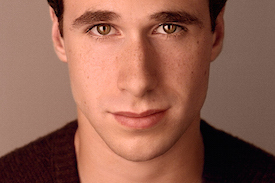
Tell us about marketing activities or efforts on this project – and how it worked or didn’t work?
MC: I’m in the early process of marketing this film. I’ve reached out to a lot of horror blogs and independent filmmaking blogs to try to get press. I’ve put together a promotional collection of material to send so it’s easy for the press to look over all of my material. That’s helpful (A press kit / production notes,a trailer, making a poster, etc.). You want to package your promo material neatly and efficiently for the press so it’s easy for them to promote their film and get creative with it, instead of having to go through rounds of asking for things they need from you.
What do you hope audiences will get from the presentation of your film?
MC: I hope audiences will be entertained and disturbed by the film.
What else have you got in the works?
MC: I’m in post on a 12 minute short film that I wrote, produced and directed. It’s different from the work that I’ve been doing lately, and I’m really looking forward to sharing it.
Tell us what you think of the Case Study for The Sale. What do you think of it? Let’s have your comments below and/or on Facebook. Or join me on Twitter.
Follow Max Cianci on Social Media
Website
IMDb
Facebook
LinkedIn
Twitter
Instagram
Vimeo
MORE STORIES FOR YOU

